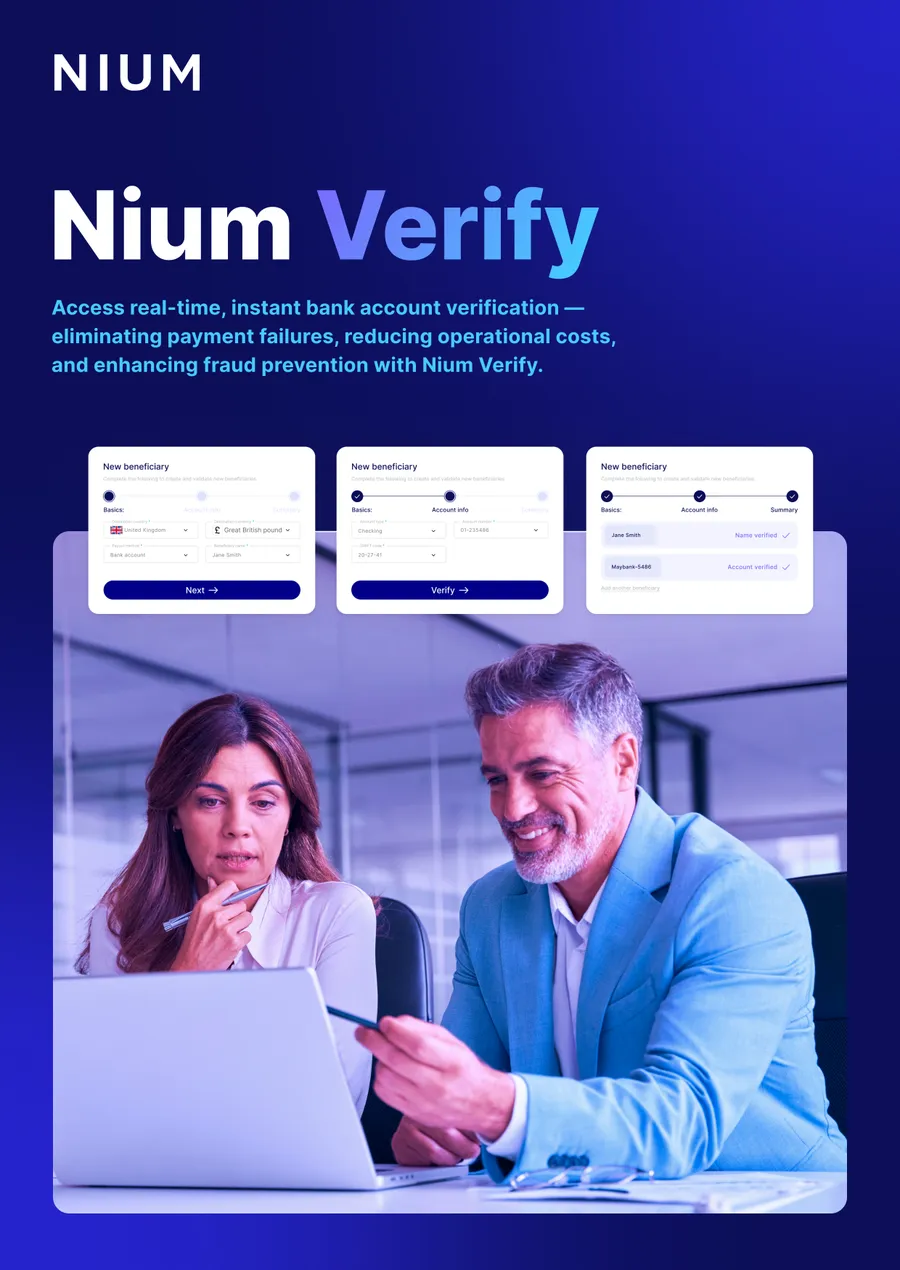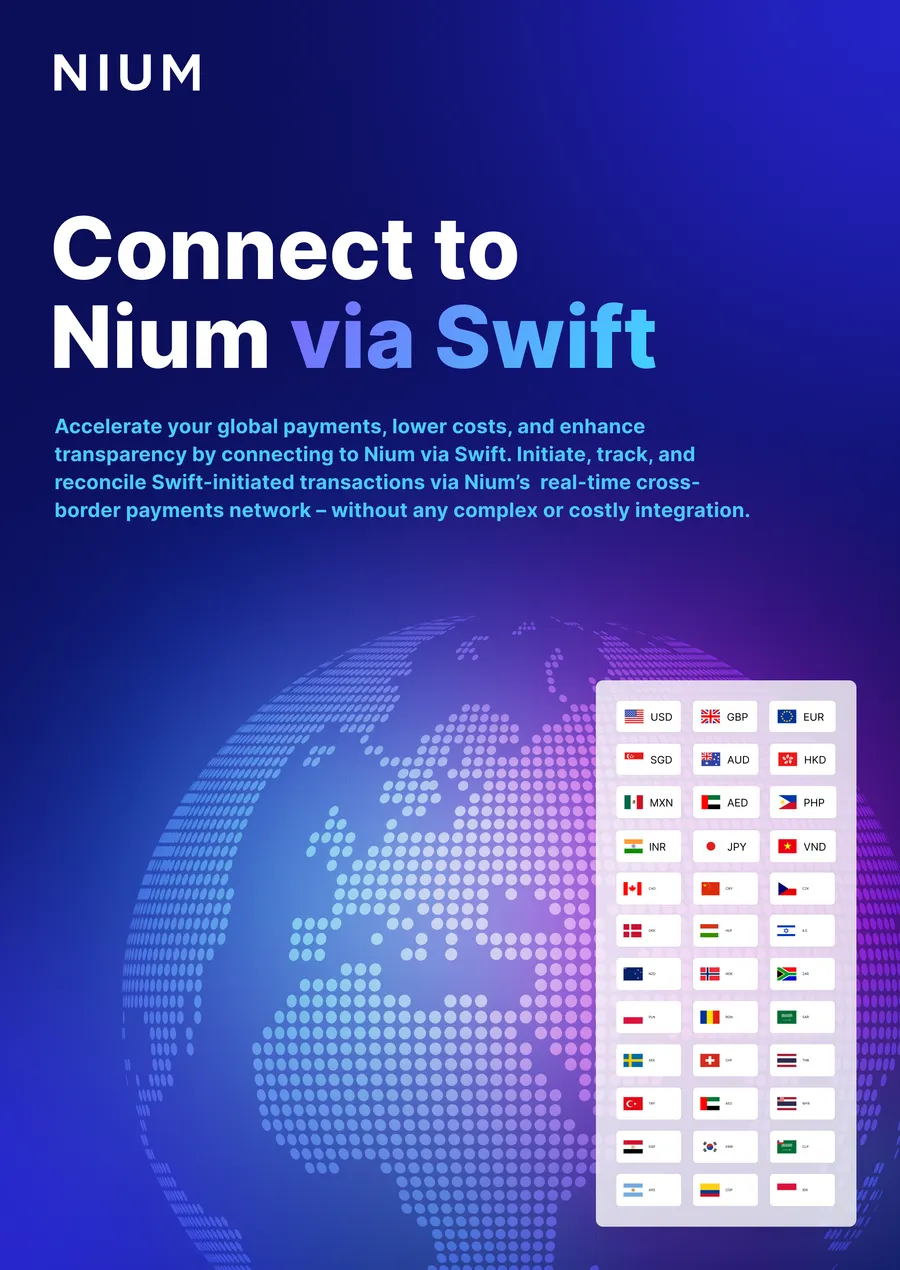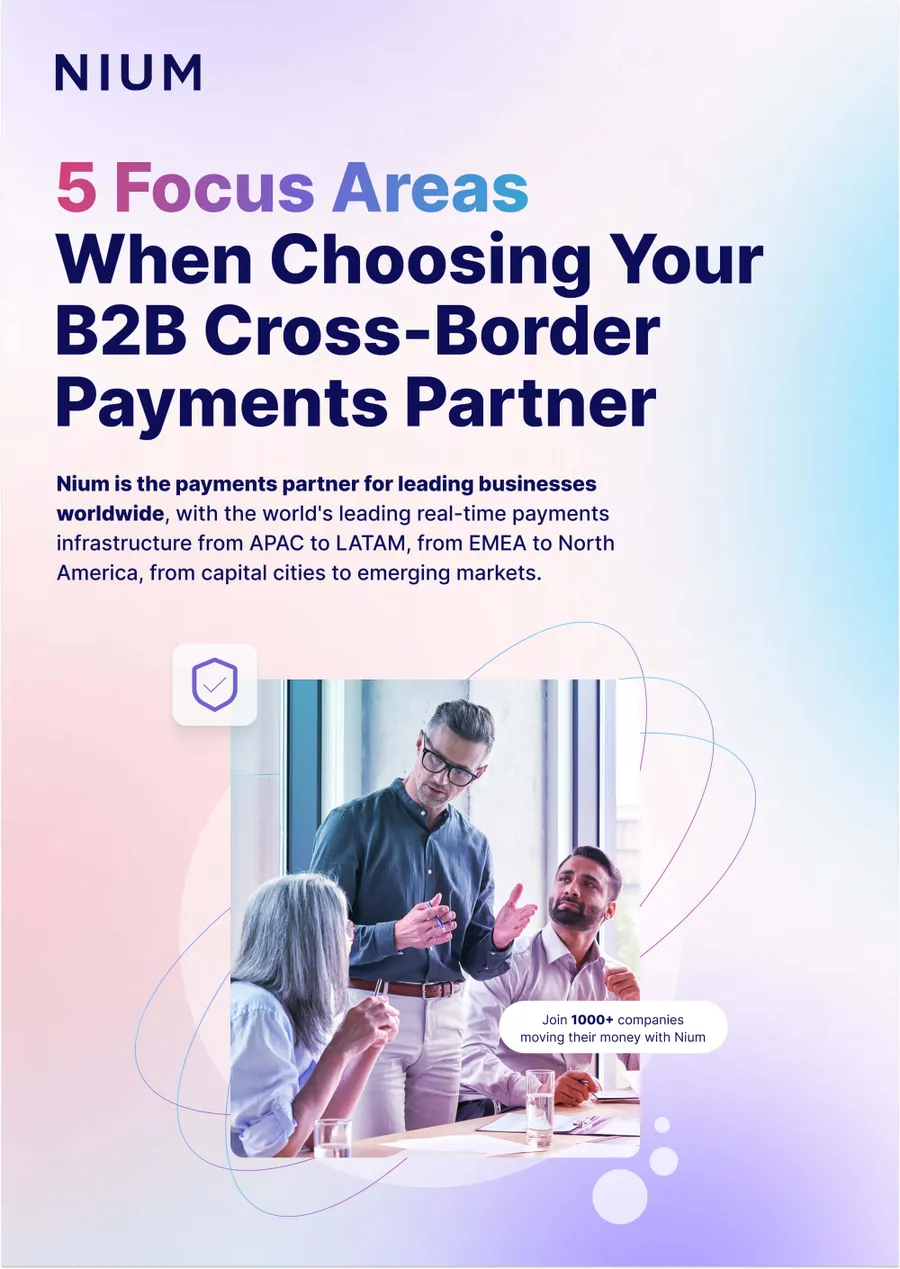Global selling and E-commerce
With the global e-commerce market hitting $21 trillion in 2023, global selling has become vital for online marketplaces. These platforms, which currently account for 62% of e-commerce, are faced with a huge opportunity for growth, much of which comes from the increase in sales across borders, which is predicted to comprise 33% of global ecommerce by 2028. This presents a huge opportunity for expansion into new markets, but also raises some unfamiliar challenges that will need to be overcome.
To attract and retain sellers whose loyalty is not guaranteed (62% of sellers surveyed plan to sell on more than one marketplace in the next year), online marketplaces will need to maximise their onboarding process. The ones that thrive will be those who can attract sellers through a dependable service offering speed, clarity, and flexibility.
Nium’s services help online marketplaces expand by facilitating the onboarding of new customers quickly and easily, giving them an edge as they look to expand and attract new global sellers.
The challenges of global onboarding
Marketplaces that have sellers in emerging markets are often forced to use an external payout provider in order topay them, since their main payment service providers can typically only onboard sellers in markets such as the US, Australia or the EU. This requires additional onboarding and the management of multiple payment providers, which penalises the sellers and limits their user experience.
This currently presents a problem for marketplaces, since the ability to work with global sellers is becoming increasingly important. From 2021-23, 40% of the fastest growing marketplaces were outside the US and Europe.
Online marketplaces will therefore need to provide global sellers with what they desire: to have a direct relationship with the marketplace they interact with, to be onboarded only once, and to operate with as little hassle as possible.
How Nium can help
Speed and simplicity
While access to a large pool of buyers is an advantage for marketplaces, sellers can only reap the benefits if they can incorporate themselves into marketplaces with a minimum of stress, and receive payments promptly, efficiently and flexibly.
This makes the ability to provide straightforward, easy-to-use payments essential to seller retention and growth. This in turn encourages marketplaces to operate through platforms that can integrate securely with their own infrastructure, which they can manage themselves.
Nium‘s platform supports this via API integration and hosted payment pages, allowing marketplaces to seamlessly integrate Nium’s payment functionalities into their existing platforms. This integration capability helps to create a cohesive user experience that does not force customers to leave the marketplace’s ecosystem.
Nium also simplifies financial reporting and reconciliation, via methods like providing virtual account numbers for every invoice, and so simplifying financial reporting and reconciliation. This helps marketplaces to keep track of transactions, fees, and payouts, while saving hours every day on administration and unnecessary resources.
This kind of admin can be a substantial burden, and it’s estimated that over half of financial institutions are still manually completing up to 60% of the KYC (Know Your Customer) review tasks, with 90% admitting that this reduces their ability to make better risk decisions. Any opportunity to reduce this presents a valuable streamlining opportunity for marketplaces.
Control over payments
Sellers will seek out the platforms that provide them with maximum control over their payments. The ideal will be the ability to create tailored, segmented payment journeys that reflect their customers’ individual needs
However, Marketplaces won’t want to serve as acquisition tools for these providers, or share their seller details with their competitors. Likewise, sellers have little desire to create new accounts with different payout providers for each marketplace. They want payouts without any extra account sign-ups, fully embedded in the global marketplace environment.
Nium’s platform underpins this process by offering all parties maximum control, with a white-labeled infrastructure that enables marketplaces to manage the full customer experience in depth. This infrastructure can also be fully embedded within the existing seller marketplace system without forcing sellers to sign-up to another service. This lets marketplaces have full control over both FX (currency exchange) and speed of payouts, without the need to share their seller user base with other competitors.
The result is that marketplaces are left fully in control of FX, able both to add additional margin and to use payouts to gain additional revenue, without having to let a payout partner handle processes like FX.
Payment-driven acquisition
The ability to adapt to local norms and preferences is a key component to payment-driven marketplace success, especially when entering new (and perhaps unfamiliar) regions. In particular, prompt and reliable payouts are key to guaranteeing an enhanced seller experience, encouraging customer loyalty and continued seller participation.
Different regions will have their own unique economic context, dictating particular payment schedules, methods or advances, and new market entries will flounder if they can’t adapt and deliver effectively. For example, offering local currency payouts in markets with a high prevalence of unbanked users might necessitate paying out to apps rather than accounts. Operating across borders can also exacerbate other issues: fees for international wire transfers and card payments can be as high as 5% per transaction.
Nium’s platform facilitates marketplaces, distributing payments in their preferred currency to a wide range of sellers worldwide, while keeping on top of both FX fees and end-to-end transaction costs.
Scalability and flexibility
Scalability is also crucial, since payment partners need to grow in sync with the marketplaces they serve, and have the flexibility to accommodate the differing requirements of new regions.
Nium can help onboard sellers in all regions by supporting the onboarding process in the relevant local language. This includes compliance, where Nium’s 15+ payment licenses worldwide ensure compliance with local and international financial regulations, including anti-money laundering (AML) and know your customer (KYC) regulations. This enables Nium clients to simplify onboarding as they can quickly and efficiently perform essential checks on sellers, even in new regions.
Nium also allows marketplaces to continue with their preferred acquiring partner while gaining new flexible payout options for sellers, including direct bank transfers, ‘buy now, pay later’ (BNPL), payments to cards and mobile wallets. This provides a significant advantage when dealing with a diverse seller base, giving platforms the tools to enter new markets and adapt quickly to local customs.
Conclusion
Nium’s platform offers marketplaces the qualities they desire, including control, seamless integration, real-time payment processing, flexible payout options and compliance.
Online marketplaces that take advantage of this platform will be able to expand with confidence, knowing that they’ll be fully capable of conquering the challenges that await them when onboarding new global sellers.







